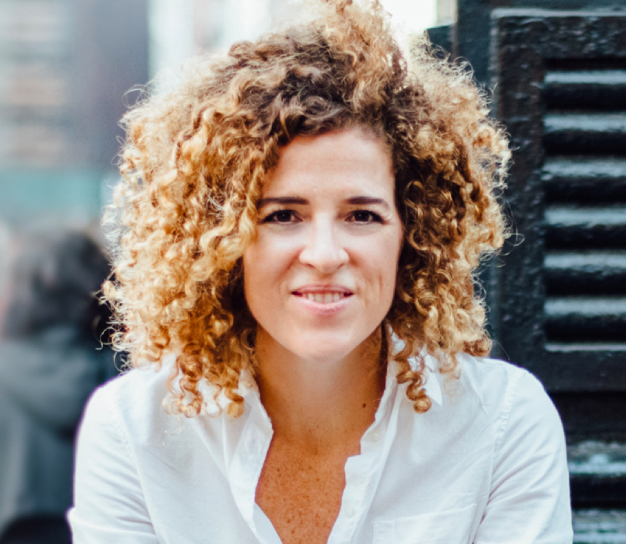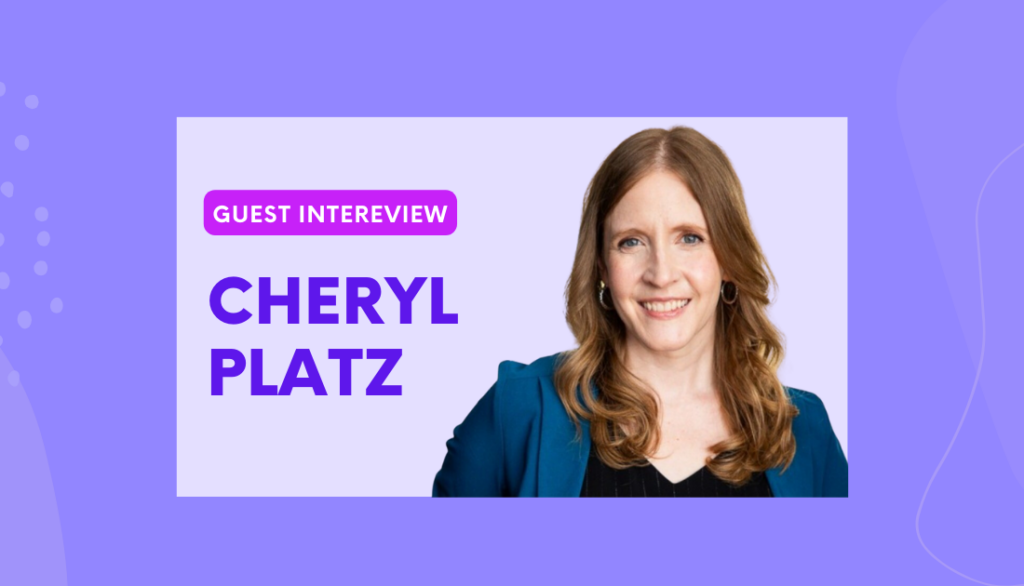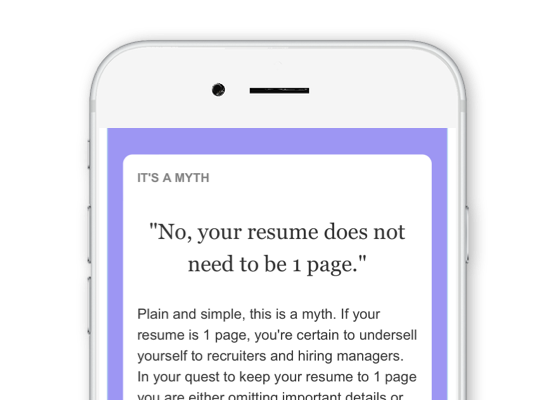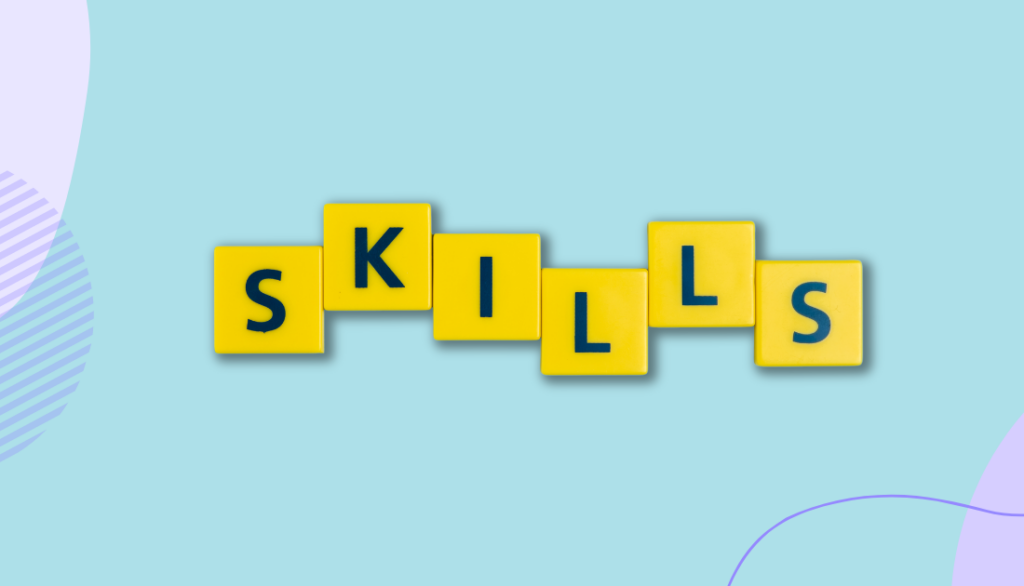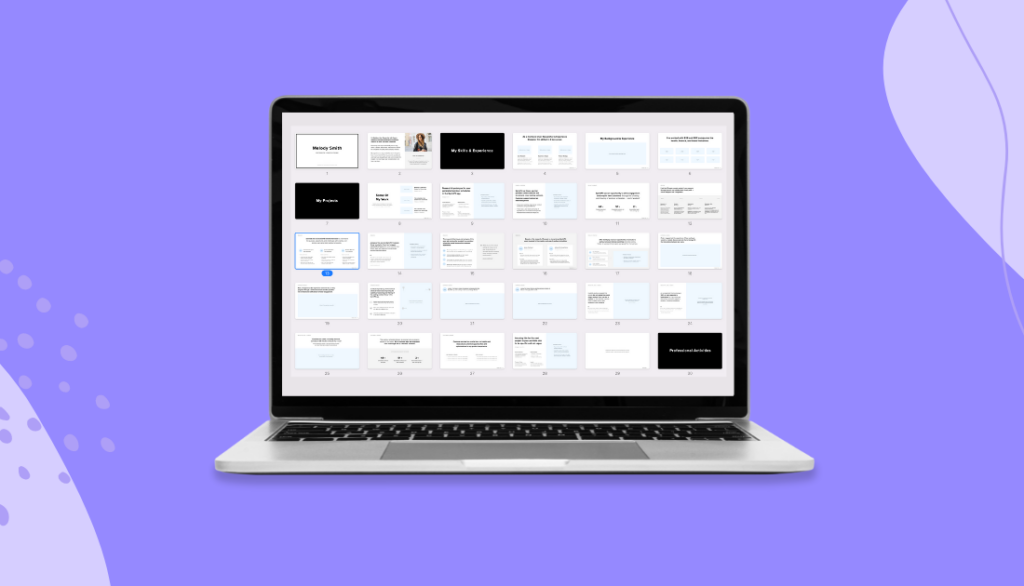Episode 67
Why you should prioritize people over platforms in your job search
14 min listen
Episode 22
14 min listen

Listen to the Episode
Episode Summary
Discover why prioritizing people over platforms in your job search is crucial to finding a role fast. In this episode of the Career Strategy Podcast, learn how leveraging relationships and word of mouth can help you find and fill job opportunities before they even hit the job boards.
Did you know that 85% of jobs are found and filled through relationships and word of mouth? This statistic highlights the significance of building and leveraging connections in your job search. By relying solely on job boards and online platforms, you may miss out on hidden job opportunities and valuable connections.
In this episode you’ll discover how to develop meaningful relationships with professionals in your industry, follow key influencers on LinkedIn, and seize referral opportunities. We delve into the power of personalized outreach and share success stories of candidates who landed their dream roles through strategic networking. And you’ll learn how to craft compelling messages that catch the attention of hiring managers without overwhelming them.
Don’t let your job search be limited by online portals – prioritize people and unlock career gold. Tune in to this episode of Career Strategy Podcast for actionable strategies to take control of your job search and career.
Create your dream career, and life
- Book a free Career Strategy Call to learn how we can help you
- Get our free Career Roadmap to help you navigate your career
- Check out Career Strategy Lab, our 3-month career coaching program
Watch
Discussion Questions About The Episode
- In your own job search experience, have you prioritized platforms or people? How did that decision impact your results?
- Think about a time when you reached out to someone directly during your job search. What did your message look like and what was the outcome? How did the direct approach benefit you?
- Reflect on the concept of developing relationships with people who work at companies you're interested in. How might this strategy increase your chances of success in your job search? Discuss potential approaches for building these relationships.
- Consider the hiring manager's perspective shared in the episode. How can you craft a compelling message that catches their attention and prompts a positive response? Share any strategies or tips you have learned or used in reaching out to hiring managers directly.
- How can leveraging relationships and word of mouth help in finding job opportunities before they hit the job boards? Share any personal experiences or success stories.
Episode Notes & Links
This episode is part of a 5 part series about the job search, check out the other episodes in the series:
- 🔎 Ep 21: The # 1 thing to do before you apply for a job
- 👥 Ep 22: Why you should prioritize people over platforms in your job search
- 🎲 Ep 23: Why you should NOT play the numbers game in your job search
- 🕵🏻♀️ Ep 24: How to research a company before you apply
- 😞 Ep 25: How to deal with rejection in your job search
Episode Transcript
Sarah Doody [00:00:00]: Hey there. I’m Sarah Doody, host of the Career Strategy Podcast. Many professionals are seeking more impact, flexibility, growth, and, let’s face it, getting paid what they’re worth. But how do you unlock this in your career? It starts with strategy. I’m taking you behind the scenes of what’s working for my career, coaching clients. You’ll hear strategies and actionable, yet sometimes against the grain advice for how you can be the CEO of your career. And stop dreading Monday. Ready to level up your career? Let’s get after it.
Sarah Doody [00:00:38]: Welcome back to another episode of the career Strategy podcast. I am so excited to be with you here today and dive into another episode. In this series, we’re doing all about the job search. So depending on when you’re listening to this, you might be able to binge all of these episodes in this series, or you might have to wait a couple of weeks for the rest of them to come out. But in the series, we’re going to cover topics such as the number one thing you need to do before you ever apply to a job, why you should absolutely never, ever play the numbers game in your job search. How you can really strategically research the company culture and its vibe before you ever apply, and how to deal with rejection in your job search. And also today, our topic of why you need to prioritize people over platforms in your job search. So if you have friends or family or neighbors or colleagues that could benefit from this, tell them to check it out, because this is our job search series.
Sarah Doody [00:01:43]: All right, so prioritizing people over platforms in your job search. What does that mean? Why should you do it and how do you do it? So I want to start off with a stat, and that is 85% of jobs are found and filled through relationships and word of mouth. And that’s from the US. Department of labor and Statistics. What does that tell us? It tells us that relationships matter. People matter. You may, through relationships, hear about jobs before they ever hit a job board. You may be able to get a referral link so you can apply through a link from someone at the company.
Sarah Doody [00:02:25]: You may get the opportunity to send the hiring manager a message and kind of pitch yourself in almost a cover letter type message. There are so many reasons why it’s valuable to leverage existing or create new relationships when it comes to your job search. And those relationships can help you with your current job. Sarah but also they can help you years and years to come. Whether it’s two years from now or 20 years from now, these relationships could be career gold in the future. So I want to go through how a lot of people apply to jobs and find jobs through the Portal method. So the Portal method is when you really just rely on kind of making the rounds, you hop over to LinkedIn.com and go to the job section. Then you bounce over to Glassdoor.com and do the same.
Sarah Doody [00:03:26]: Then you go to Indeed, and then you maybe go to some industry specific job boards related to what you do. Now, let’s say you actually apply to some jobs, and then what’s the problem? The problem is you just have to sit back and wait. Because a lot of times when you apply to jobs, you get the confirmation email from one of those no reply email addresses. So there’s no way for you to ask someone questions about the job, right? There’s no opportunity to email the hiring manager and pitch yourself or send kind of a mini cover letter and say, hey, I wanted to let you know I applied. I think I’m a fit for this role. Because of X, Y and Z. You can’t do that. Why? Because you don’t have a contact at that company.
Sarah Doody [00:04:16]: So that’s how a lot of people’s job searches work, right? It’s just go to the portal, apply, cross my fingers onto the next. This is also how a lot of people end up getting sucked into the numbers game, which we’re going to talk about in another episode, so we’ll save that for later. But instead of just focusing on the platforms, you need to focus on people, because people open up opportunities to hear about jobs before they ever hit the job boards. They give you connections to people at the company. So like I said, you can ask questions, you can follow up to find out, like, hey, what’s the timeline for this? Did you decide not to hire, et cetera. You have access to someone internally that you can check in with and sometimes even pitch yourself, which does work, and we’re going to go into an example of that in a little bit. So if you’re in the middle of a job search or plan to very soon, one of the most strategic things you can do is to start developing relationships with people who work at those companies. So that could be as simple as hanging out in online communities of your peers or of your industry or of your trade, so that you’re kind of not hanging out with everyone on LinkedIn.
Sarah Doody [00:05:41]: But let’s say you do user research. Maybe you’re hanging out in more research related groups and communities. Another thing that’s really valuable is to go find people who work at those companies and follow them on LinkedIn and make sure you turn that notification bell on too, on their profile. What this does, it ensures that you are going to see their posts in your feed. So that if you want to work at whatever company, you will see if one of those people from the company post that their team or their colleagues team is hiring. And the beauty of this is when you see a post by someone that says, hey guys, my company is hiring. Let me know if you have any questions and I can give you a referral link to apply. Great.
Sarah Doody [00:06:36]: So now you have a referral link, you have someone to ask questions to, and that person could potentially introduce you to the hiring manager or other people in the event that you wanted to pitch yourself via a cold what I call sometimes lukewarm email, which means it’s lukewarm if you already have an existing relationship with them. And when you have an existing relationship with someone and you message them, they’re more likely to recognize your name and potentially reply because you’re not a stranger cold emailing them. All right, so I want to go through an example that I saw on LinkedIn Gosh last year, sometime of a hiring manager who posted an example of when they themselves were cold messaged by a potential candidate, and they actually ended up hiring the candidate. So let me just read it, and I’ll keep their name anonymous. But the hiring manager says, I hired a candidate that first connected through LinkedIn before they were sourced, referred, or screened through the ATS system. They took the liberty to go straight to the hiring manager with a simple message. Here’s what it said. Hey, Dave, I hope you’re well.
Sarah Doody [00:07:51]: I wanted to connect to learn more about the program manager roles you’re hiring for. I’m currently a an insert their job title at insert their company with seven years of experience, looking for a new opportunity and open to the option of relocation. I hope to speak with you soon and happy to provide my resume. Thank you. And this person, Dave, the hiring manager went on to say, there’s no perfect LinkedIn introduction, right? There’s no perfect formula to use or template, madlib style template. You have to be strategic based on who you’re reaching out to, why you’re reaching out to them. What is the degree of relationship that you already have with them? Do you have anyone that could maybe introduce them to you? And you also have to be mindful of being very clear, very decisive, very direct and friendly, too, at the same time, and not sending a cold email that’s like 800 words long and asking the person to also review your resume and your LinkedIn profile and your cover letter and do you all these favors. Also, you want to be not asking them for pick your brain sessions or other random things like that.
Sarah Doody [00:09:10]: So this is what that hiring manager went on to say. He said, as a hiring manager, I’m often getting 25 to 30 messages a week, and I really appreciated that I didn’t have to read multiple paragraphs. Furthermore, notice this person didn’t ask me to take action. Like I said, review my resume, pick my brain for 30 minutes, et cetera. And they ended up hiring that person, which is pretty incredible. So I wanted to provide that example to help you realize the power of cold emailing people and or developing relationships with them. So if you are one of those people that maybe doubts whether or not you should cold email people or you think, oh, I’m such an introvert, or I don’t want to clog up their inbox or anything, I think when you send very strategic, concise, direct and friendly messages, it’s really going to stand out. Because, honestly, the bar to stand out is so low.
Sarah Doody [00:10:15]: As someone myself who receives so many cold messages every single day, the ones that actually take the time to connect with me, to be human, to be respectful of my time and my inbox and just tell me exactly what their question is or their ask is, those are the ones that stand out. And in this case, like I said, this person ended up getting hired because they prioritized people over platforms. Today in your job search, it’s not enough to just go to job platforms, hit apply, cross your fingers, and hope for the best. You really need to proactively be seeking to create or nurture relationships in your job search and with people who work at companies where you want to work. And you really need to get over this fear of pitching yourself. Hiring managers and recruiters are overwhelmed with candidates and sometimes just simply sending a very short email or message on LinkedIn can honestly make or break whether or not they notice you to begin with and then ultimately invite you to interviews. And I say this because time and time again, people in the career coaching program that I run, they resist this. They don’t do it despite us giving them examples and ideas and various different strategies for how to reach out to people.
Sarah Doody [00:11:48]: And finally, when they do, they are amazed that people reply. And I just say to them, imagine if you’d done this a month ago, you might be hired already. So when you thoughtfully reach out to people, they will notice. But the key is thoughtfully and strategically, part of the people over platforms element of your job search involves finding jobs to begin with, right? Because we talked about how by following people on LinkedIn, by turning on their notifications, you’re going to see if that person, a human, posts on their personal profile that their team is hiring. And then voila, you’ve struck gold. And you now have a person attached to the job that you can potentially reach out to, to send a cold email, to ask questions, to get an intro to someone else on the team who’s the better contact because they’re the hiring manager. And also this also helps you in the long term because you’re building these relationships that could lead to other opportunities months, weeks from now. If you have not prioritized people in your job search, it is not too late.
Sarah Doody [00:13:02]: You could go to LinkedIn right now and easily find five people who work at a company or multiple companies where you want to get hired and you could follow them, turn the notifications on so that you start to see their posts in your feed so that if they say their team is hiring, you are going to be the one of the first to know. Even if you do find jobs on platforms like LinkedIn, indeed, et cetera, you should still try and do some searching on LinkedIn to find the person that is the hiring manager or you think is the hiring manager. Even if you’re wrong, you could still send a message that says something along the lines of, hey Samantha, I wanted to let you know I applied for this job at whatever the company is, and I’m trying to find who the hiring manager is. I’m wondering if it’s you or if it’s someone else on your team. I think I’m a great candidate because of X-Y-Z and see what happens. So that’s how you prioritize people over platforms in your job search. If you do this, I promise, even if you’re nervous or you think you’re an introvert, or you don’t want to disturb people and send cold emails, if it’s thoughtful, concise, direct, people will notice, and this could really make or break you getting an interview or not. So let me know if you do this.
Sarah Doody [00:14:27]: If you start to get interviews after you do this, I would love to hear about it. Shoot me a comment or a message on social media, and I can’t wait to hear how this helps you in your job search. And don’t forget, we are in the middle of this job search series, so next episode will be all about why you should not play the numbers game in your job search. I have a lot to say about that, so make sure you check it out next week or hop on down to that episode if it’s out right now. Thanks for listening to the Career Strategy podcast. Make sure to follow me. Sarah duty on Twitter, instagram. YouTube or LinkedIn? If anything in today’s episode resonated with you, I’d love to hear about it.
Sarah Doody [00:15:11]: Tag me on social media or send me a DM. And lastly, if you found this episode helpful, I’d really appreciate it if you could share it with a friend or give us a quick rating on Spotify or review on Apple podcast. Catch you later.
